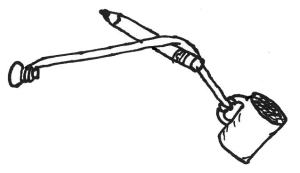At Newcastle University, we are proud to support our female engineers throughout their studies and their careers with us. Today we are featuring some profiles of our current students and staff and sharing their thoughts about being a woman in engineering in 2017.
Hayley Fowler, Professor of Climate Change Impacts
 I did a national engineering scheme at school, there were five of us paired with British Aerospace, a local company, in lower sixth form. We made a plastic aeroplane and all the electrical and mechanical components, it was a great experience.
I did a national engineering scheme at school, there were five of us paired with British Aerospace, a local company, in lower sixth form. We made a plastic aeroplane and all the electrical and mechanical components, it was a great experience.
I ended up going to Cambridge to do Geography as I love learning about how things work, but when looking at careers I realised that I didn’t want to end up in London doing finance or management in the water industry, so I decided to do an MSc in Water Resources Systems Engineering at Newcastle University. Then I stayed on to do a PhD and the rest, as they say, is history.
I think that the greatest engineering challenge of the future is around climate adaptation – building low carbon cities and adapting to heat and weather extremes.
Engineering is crucial for everyone, we need to build infrastructure systems and buildings for the modern world, and design new systems to cope with our ever changing climate and extreme weather events. We need young people with bright ideas. Don’t believe that it’s only men who can do engineering, some of the best and most inventive engineers out there are women.
Irma Yeginbayeva, PhD Student in Marine Technology

When I was a teenager I used to watch my father repair his car and children’s bicycles. I guess that is the time when I first learned to use tools and other equipment and that planted the first seeds of interest in engineering.
Reflecting back to my skills and capabilities, which I have developed during my research project, I really see myself in academia. I try not to hinder myself professionally or gender wise.
As a person working towards sustainable shipping, I fully understand the reasons behind extensive research carried out to reduce carbon emissions and promote green energy. Reduction of greenhouse gases should be the most important thing on the agenda, especially if you think about the world’s population will grow by two billion over the next two decades.
As a female in engineering, I can see the trend of male dominance is fading. There are plenty of organisations and societies there to help and motivate women to overcome the challenges faced as a female engineer.
Goksu Kandemir, MSc Biomedical Engineering

I had a physics teacher who encouraged me to be an engineer. He helped me to discover my talents and interests. The feedback I received from my high school teachers, supervisors and my family helped me to see what I can achieve and what I want in life.
I believe that Newcastle University supports the students both academically and socially very effectively, by giving them the chance to experience things that they have not experienced before.
Do not give up if someone tells you that you cannot be an engineer just because you are a girl. If you want to be an engineer and if you think that it will make you happy, then I can guarantee that you will prove these people wrong.
Lijuan Xia, PhD Student, Electrical and Electronic Engineering
 I’ve been interested in engineering since high school, I always liked physics lessons. I was so into how Steve Jobs created the iPod, iPhone and iPad during the last decade, this was the trigger for me to step into the engineering industry.
I’ve been interested in engineering since high school, I always liked physics lessons. I was so into how Steve Jobs created the iPod, iPhone and iPad during the last decade, this was the trigger for me to step into the engineering industry.
My final goal is to start up my own engineering company which will produce biomedical products to make a different in the world.
I would advise any young girls thinking about becoming an engineer to think hard, talk to smart people and keep your heart open for feedback.
Jenny Olsen, BEng Mechanical Engineering

I chose Mechanical Engineering as I wanted to study a degree that covered lots of different areas. I’m really interested in Bio-Mechanical Engineering, but I’m also a big motor sport fan – studying Mechanical Engineering allowed me to pursue many things I was interested in whilst also keeping my career options open.
Mechanical Engineering is a very diverse subject and you learn a lot of practical skills which are not only relevant to the course but really useful for everyday life. I’ve really enjoyed studying Mechanical Engineering at Newcastle, it’s been a challenge, but definitely worthwhile! I’ve learned so many practical skills that I wouldn’t have learned otherwise and made some great friends.
My advice to any girls who are thinking about engineering as possible career would be don’t be afraid to get things wrong, be confident and ask questions!
